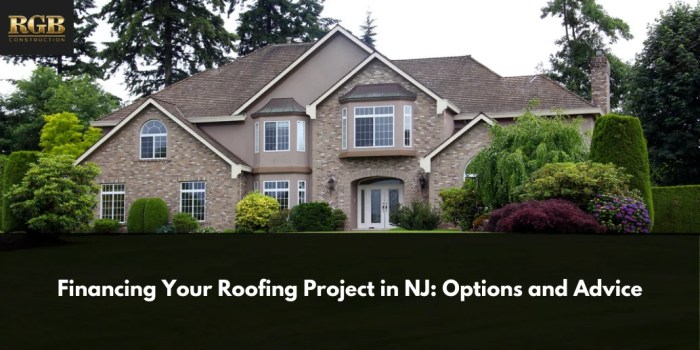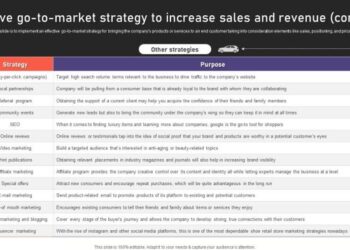Delving into Financing Options for Roofing and Exterior Projects, this introduction immerses readers in a unique and compelling narrative. From traditional bank loans to government programs and credit options, the world of financing for home improvement projects is vast and varied.
Let's explore the various avenues available for financing roofing and exterior projects, providing homeowners with the necessary information to make informed decisions.
Financing Options

When it comes to financing roofing and exterior projects, there are several options available to homeowners. From traditional bank loans to home equity loans and personal loans, each option has its own set of advantages and considerations. In addition, contractor financing offers a convenient way to fund your home improvement projects with the help of the professionals you trust.
Traditional Bank Loans
Traditional bank loans are a common option for financing roofing and exterior projects. These loans usually come with fixed interest rates and predictable monthly payments, making it easier for homeowners to budget for their project. However, the approval process for bank loans can be more stringent, requiring a good credit score and a solid financial history.
Home Equity Loans vs. Personal Loans
Home equity loans and personal loans are two popular choices for financing home improvement projects. Home equity loans allow homeowners to borrow against the equity in their property, typically offering lower interest rates and longer repayment terms. On the other hand, personal loans are unsecured loans that do not require collateral, making them a good option for homeowners who may not have enough equity in their home.
However, personal loans often come with higher interest rates compared to home equity loans.
Contractor Financing
Contractor financing is a convenient option for homeowners who prefer to work with a single provider for both the project and financing. In this setup, the contractor partners with a lending institution to offer financing options to homeowners, streamlining the process and making it easier to get the project started quickly.
Contractor financing can be a good choice for homeowners who want a hassle-free experience and prefer to have everything taken care of by the professionals.
Government Programs
Government programs play a crucial role in providing financing options for roofing and exterior projects. These programs aim to promote energy efficiency, improve property value, and enhance overall sustainability.
PACE (Property Assessed Clean Energy) Financing
- PACE financing allows property owners to fund energy-efficient upgrades, including roofing and exterior projects, through a special assessment on their property taxes.
- Eligibility criteria typically include owning the property, being current on property taxes, and having no outstanding liens.
- Repayment terms are spread out over a set period, usually up to 20 years, making it a convenient option for homeowners.
FHA (Federal Housing Administration) Loans
- FHA loans can be utilized for home improvement projects, including roofing and exterior upgrades, providing an accessible financing option for homeowners.
- These loans are insured by the Federal Housing Administration, offering competitive interest rates and flexible terms.
- Eligibility criteria for FHA loans may include meeting credit score requirements, income verification, and complying with FHA property standards.
Tax Credits and Rebates for Energy-Efficient Upgrades
- Various tax credits and rebates are available for homeowners who invest in energy-efficient upgrades to their roofs and exteriors.
- These incentives aim to encourage sustainable practices and reduce energy consumption, benefiting both homeowners and the environment.
- Eligibility criteria for tax credits and rebates may vary based on the type of upgrade and location, so it's essential to research and understand the specific requirements.
Credit Options

When it comes to financing smaller roofing and exterior projects, credit cards can be a convenient option for homeowners looking to spread out the cost over time
Using Credit Cards for Home Improvement
Credit cards offer the flexibility of making purchases immediately without having to pay the full amount upfront. This can be beneficial for urgent repairs or upgrades needed for your home's exterior. Additionally, some credit cards offer rewards or cashback incentives for home improvement purchases, providing additional value to homeowners.However, it is essential to consider the high-interest rates associated with credit cards, which can result in significant long-term costs if the balance is not paid off quickly.
Additionally, credit limits on cards may not be sufficient for larger roofing or exterior projects, limiting the amount you can finance through this method.
Lines of Credit for Home Improvement
Lines of credit are another form of revolving credit that homeowners can use for home improvement projects. Unlike credit cards, lines of credit typically have lower interest rates and higher credit limits, making them a more cost-effective option for larger roofing and exterior projects.Lines of credit allow homeowners to borrow funds as needed, paying interest only on the amount used.
This provides flexibility in managing project costs and can be a more affordable financing option compared to credit cards.
Credit Scores and Financing
Maintaining a good credit score is crucial when seeking financing for roofing and exterior work. Lenders typically use credit scores to assess the risk of lending money to borrowers, determining the interest rates and terms offered.A higher credit score can lead to lower interest rates and more favorable financing terms, making it easier and more cost-effective to fund home improvement projects.
On the other hand, a lower credit score may limit the financing options available or result in higher interest rates, increasing the overall cost of the project.Consider your credit score and financial situation carefully when exploring credit options for roofing and exterior projects to ensure you choose the most suitable financing method for your needs.
Vendor-Specific Financing
In addition to general financing options, many roofing and exterior companies offer vendor-specific financing tailored to their products and services. This type of financing can provide unique benefits and drawbacks compared to traditional financing avenues.
Promotions and Discounts
- Some vendors may offer special promotions or discounts for financing through their company, such as reduced interest rates or extended payment terms.
- These incentives can make it more cost-effective for homeowners to finance their roofing or exterior projects through the vendor.
Benefits of Vendor-Specific Financing
- Streamlined process: Financing directly through the vendor can often result in a more straightforward and convenient application and approval process.
- Specialized knowledge: Vendors familiar with their products can provide tailored financing solutions that align with the specific needs of the project.
Drawbacks of Vendor-Specific Financing
- Limitations: Vendor-specific financing may restrict homeowners to using products and services offered by that particular company, limiting their choices.
- Higher costs: While promotions and discounts can be enticing, vendor-specific financing may sometimes come with higher overall costs compared to other financing options.
Examples of Companies Offering Vendor-Specific Financing
- ABC Roofing:ABC Roofing offers special financing options for roofing projects, including 0% interest for the first 12 months.
- XYZ Exteriors:XYZ Exteriors provides flexible financing plans with competitive rates for siding and exterior renovation projects.
Last Recap
In conclusion, Financing Options for Roofing and Exterior Projects offers a diverse range of choices for homeowners looking to renovate their homes. Whether it's through traditional bank loans, government programs, or vendor-specific financing, there are options to suit every need and budget.
By understanding the different avenues available, homeowners can embark on their projects with confidence and financial clarity.
FAQ Corner
Can I use credit cards to finance roofing and exterior projects?
Yes, credit cards can be used for smaller projects, but be aware of the interest rates and fees involved.
What are the eligibility criteria for PACE financing programs?
Eligibility criteria for PACE financing programs typically include owning the property, having no outstanding tax liens, and being current on mortgage payments.
How do credit scores impact financing for roofing and exterior work?
Credit scores play a significant role in securing financing, as higher scores can lead to better terms and interest rates.








![The Pros and Cons of Metal Roofing [INFOGRAPHIC]](https://roofing.goodstats.id/wp-content/uploads/2025/11/The-Pros-and-Cons-Flat-Roof-Vs-Pitched-Roof-Extension-75x75.jpg)



